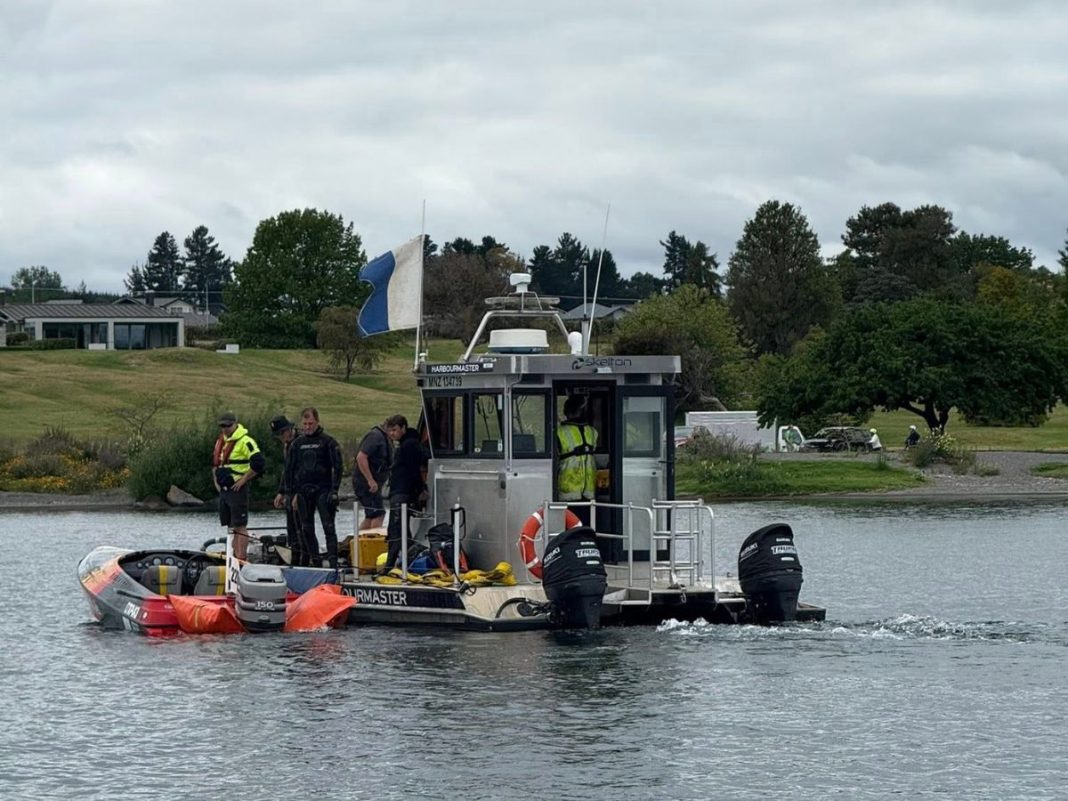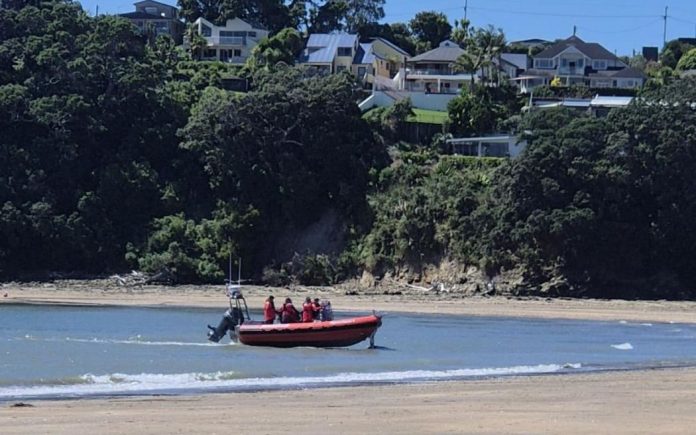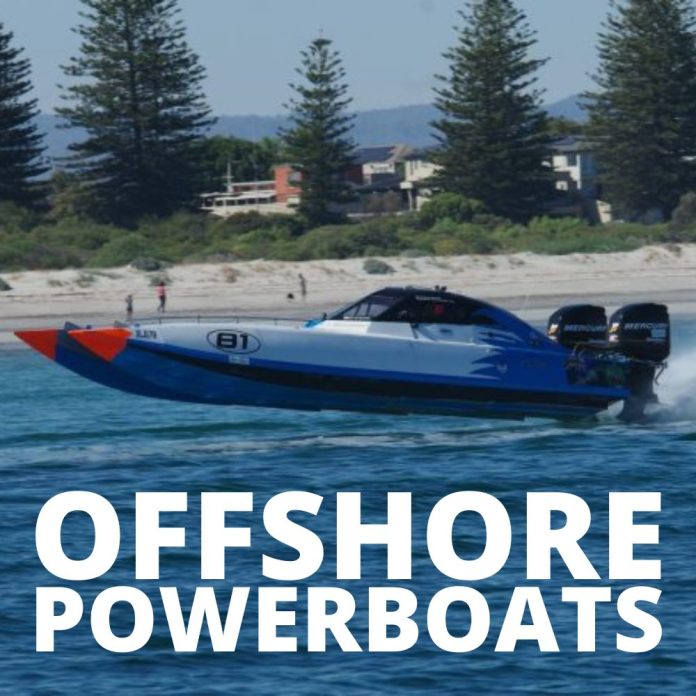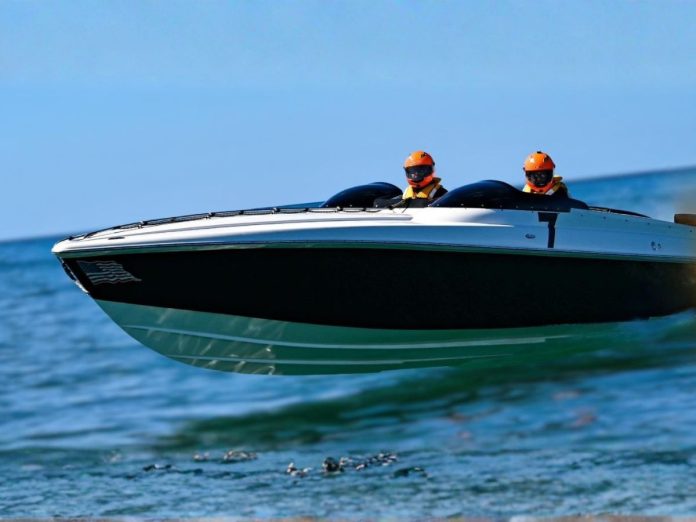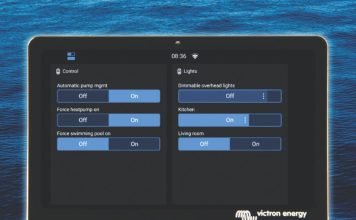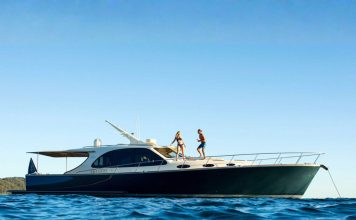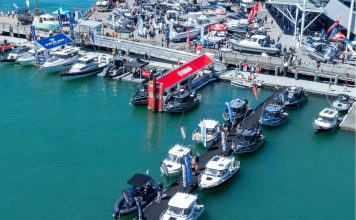Rough Taupō conditions sink a race boat, but a careful salvage brings it home.
Last Saturday the offshore racing fleet returned to Lake Taupō for Round Two of the NZ Offshore Championship and found the lake in a foul mood. Steep, short chop made it a punishing day on the water, and many crews ended the racing with aching backs and tired arms. Post-race comments swung from laughter about the rough ride to relief at getting home in one piece. One long-time fan recalled a late-eighties Taupō race in similar conditions, noting that the lake’s fresh water is often the only mercy it offers.
While most competitors battled through the day without serious trouble, one team faced a far tougher outcome. A 5.7-metre powerboat sank before the start of Race One. The two people on board swam ashore unharmed. Eight days later, the vessel has now been safely recovered.
The incident happened just before midday near the milling area off Three Mile Bay. An Offshore Powerboat spokesperson said the boat was picked up by a wake and driven into the transom of another craft. The bow buried, the cockpit flooded, and the vessel went down within moments. Because it occurred behind the milling line, few realised what had happened until the crew reached the shore.
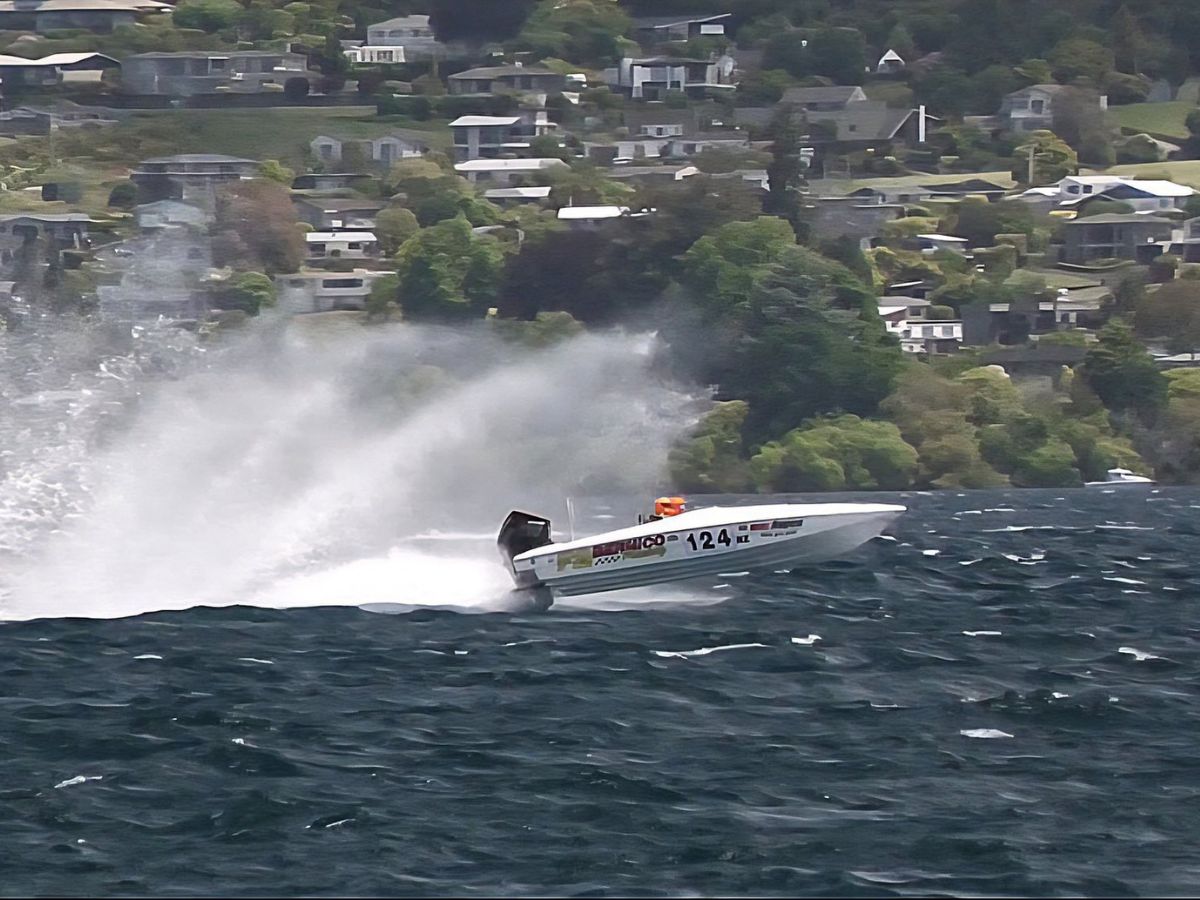
Harbour Master Jamie Grant was notified, Maritime NZ was informed, and support teams quickly began assessing the situation. Sonar identified three possible targets in 25 to 35 metres of water, but recovering a vessel from Taupō is never straightforward. The lake sits 360 metres above sea level, which complicates dive planning, and Worksafe requirements called for a bell-dive setup. Those constraints shaped the operation from the outset.
Fuel risk remained low. The sealed underfloor tank held about 80 litres and stayed secure throughout, with no sign of any sheen on the surface. Protecting the lake was a priority for all involved, and the recovery plan aimed to minimise disturbance at every stage.

New Zealand Diving and Salvage led the lift, working alongside the Harbour Master’s office and supported by kaimahi from the Tūwharetoa Māori Trust Board. Once the vessel was confirmed on the lakebed, floatation bags were attached and the boat was raised in a controlled ascent. It surfaced intact and was recovered without any fuel release. Officials later confirmed that environmental impact was minimal.
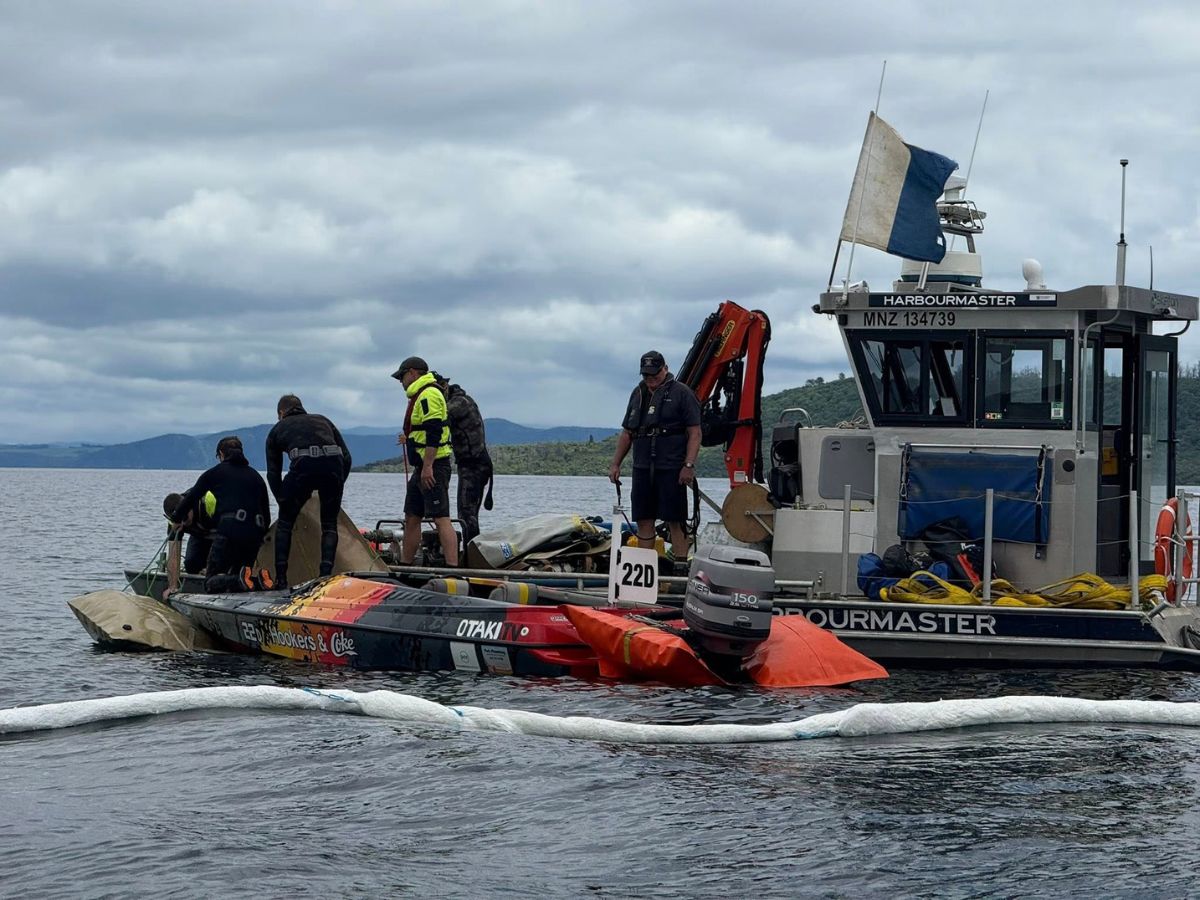
Across the remainder of the fleet, the racing delivered tight battles, a few breakages, and the sort of hard-earned stories that come from battling Taupō on a rough day.








